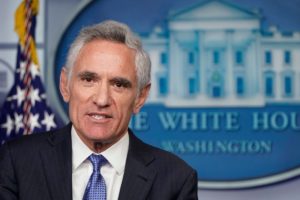

Every person who comes into the media’s crosshairs should understand this. Nothing you say or do is going to change the story they are going to write. Indeed, the story was written before they even contacted you. They will falsify quotes and leave out facts.
This is from Mark Judge, “‘They Were Relentless’: How I Learned Respect for Our Communist Media,” The Stream, December 28, 2020. The title of my post is one of the subtitles in his piece.
You don’t have to agree with the title, especially the attribution of Communist beliefs, to get a lot out of Judge’s article.
I’ve written here a few times about some of my negative experiences with mainstream media. Many of my experiences have not been similar to those of co-blogger Bryan Caplan, who has had mainly positive experiences.
Fortunately, I am learning. Back in September, I received the following email from Bloomberg reporter, and fellow Canadian, Josh Wingrove:
Hey there David,
My name is Josh Wingrove, and I’m a White House reporter with Bloomberg. I’m writing a story about Dr. Scott Atlas’s prominence as of late as an adviser to the president on the pandemic, as well as the corresponding low profile of other health advisers, including Dr. Fauci and Dr. Birx.
I’m writing to see if you have any views about Dr. Atlas or his work at the White House that you’d be willing to share, either on record or on background. Is his presence on the task force helpful? What’s his reputation at Hoover? xxx-xxx-xxxx is my cell, any help is sincerely appreciated.
Warm regards.
Josh Wingrove
White House Correspondent
Bloomberg News
Everything about this letter was a red flag that caused me to sniff “set up.”
Start with the overly friendly “Hey there David.” Then “What’s his reputation at Hoover?” Then “Warm regards.” Warm regards? Really? And we haven’t met or even talked.
But I realized I could be wrong. He might be offering to let me speak on background in case I wanted to say nice things about Scott (which, by the way, I would have) and feared that various faculty at Stanford would target me.
So I did due diligence. I looked at his recent Bloomberg pieces. To the extent they discussed Trump or Trump appointees, they were all one-sided attacks. I thought, “Ok, but maybe there’s a paragraph in there, put in to satisfy an editor seeking ‘balance,’ saying that not all the people he talked to agreed, that one interviewee was quite positive on the person in question.” Nope. Finally, I looked at Wingrove’s recent tweets. Oh my word.
I saw no upside and only breakeven or downside in emailing him or calling him.

READER COMMENTS
Daniel Kian Mc Kiernan
Dec 28 2020 at 10:15pm
*sigh*
Well, the best that could have been done is just what you have done here: to post a public piece about the situation.
Helen Willis
Dec 29 2020 at 7:57am
Think of life like a Miranda warning: “…Anything you say can and will be used against _____ and you in a court of naive people.”
Tom DeMeo
Dec 29 2020 at 11:53am
Please explain the potential “setup” here. I don’t see what you thought he was going to do that was duplicitous.
David Henderson
Dec 29 2020 at 4:22pm
Best case: Ignore what I said and waste my time.
Worst case: Twist my words or quote out of context.
maej
Dec 30 2020 at 6:04pm
As someone who generally plays “cooperate” by default, I have often found my best strategy for dealing with those acting in bad faith (both personally and to create incentives for better future play) is simply to withdraw my cooperation. I appreciate the reminder that the occasional public exposition of why I choose not to cooperate is similarly important.
Comments are closed.